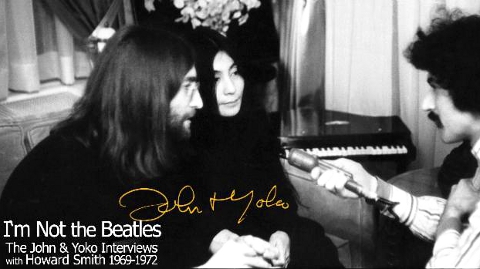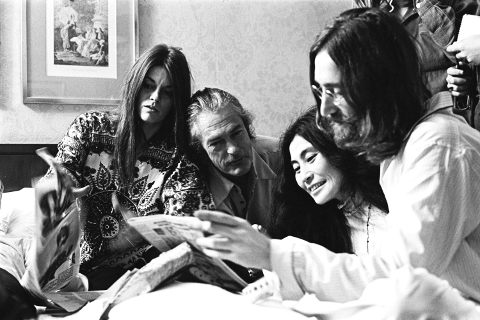The work of renaissance man, photographer, writer, broadcaster and director Howard Smith runs a critically parallel course to the events and personages that shaped human culture in the 1960s and ’70s. Historian Howard Zinn cites Smith as progenitor of a type of journalism that made the Village Voice (and ultimately the newspaper you hold in your hands) a vital aspect of the American scene.In 1969 Smith reported from Woodstock and at Stonewall; his Voice column, Scenes, faithfully chronicled the forward movement of a nascent counterculture rising up in New York. By night he was the graveyard DJ at WPLJ-FM, playing out unedited recordings of his work as a reporter of revolutions, interviewing the people informing pop culture and helping to define the term Album Oriented Rock (AOR) for an entire generation of enthralled night owls across the continent.Smith was also responsible for the documentary film Marjoe. By focusing the lens on failed evangelist and film actor Marjoe Gortner, Smith the director was able to bring a deeply divisive part of America to the critical forge he built. And he did so with a clarity of voice and simplicity of style that earned the film a Best Documentary Oscar in ’72.Smith ended up wandering away from all of that terrible beauty. He is still deeply connected to his culture though, serving quietly and diligently as an advocate for mental health services in New York City, even as voluminous amounts of his recordings continue to surface. Among the latest treasures discovered in Smith’s Greenwich Village basement is a collection of recorded interviews featuring John Lennon and Yoko Ono. This 8-CD box set is titled I’m Not the Beatles and includes a 20-page explanatory booklet, and it’s now part of a larger series known as The Smith Tapes, an expansive 12-CD affair that also includes interviews with Lou Reed and Jim Morrison, among other rock luminaries.Smith covered the Lennon/Ono phenomenon from 1969 through 1972, producing five wide-ranging, sometimes provocative and always interesting glimpses into the couple’s life together, and their resulting beliefs, experiences and actions.Smith’s clarity and incisive style are evident throughout the work. It’s important to recall that Smith, the ultimate rocanrol fan, had serious doubts about Lennon’s political and artistic activities and was quoted as saying, “Everybody was interviewing them in bed. I was forced to do this, because I probably would have said very negative things about it had I not called them. I remembered it as ridiculous.”As you listen to these interviews, witness the passage of time and the collapse of superfluous barriers. Smith’s initial skepticism evolves into a series of postmodern collaborations with John and Yoko. John is infuriated and infuriating at times, but his mordant wit is illuminating; Ono sometimes speaks in cryptic abstracts, her faraway eyes and ideas captured on tape forever; Smith lends a sense of curiosity and wonder to the proceedings that’s refreshing in its subtle critique.Smith’s output as cultural landscape detector and reflector are priceless artifacts of the world that birthed us. Here are artifacts that do not require restoration; they speak with the same resonance today as they did in the before time.
I'm Not The Beatles: John & Yoko Interviews 1969-72
The Smith TapesAn 8-CD box set with a 540-minute run time
$37.49










